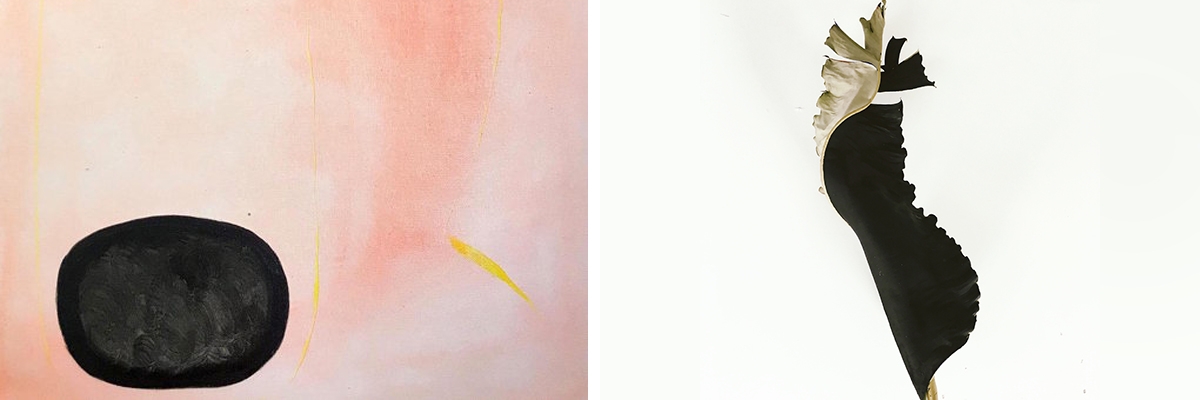
Hothouse
Sadie Rebecca Starnes
and Sophie Parker
The closer you get the more abstract and everyday the nuclear becomes.
—Dr. Ele Carpenter, “Radiation as Hyperobject”
A collaborative exhibition of work by Sadie Rebecca Starnes and Sophie Parker, Hothouse considers the resonance of radiation well beyond tangible borders—be they personal, national and even temporal.
Parker’s real and speculative vegetation (Nuclear Plants), partly sourced from New York City’s own Superfund sites, recall the bucolic landscapes known to uninhabitable exclusion zones and test sites—from the wilderness of Chernobyl to the craters of Bikini Atoll. These are set in dialogue with Starnes’ Hyper-object series—color and sound expressive Geiger counters (radiation detectors) developed in direct response to her experience of 2011’s Fukushima Daiichi nuclear disaster. Deeply informed by nuclear semiotics, these devices communicate through a legend of color, while the gallery’s own background radiation is further articulated as ambient “background music,” accentuating radiation’s ubiquitous nature.
Informed by Yves Klein’s unrealized proposal to color all atomic bombs with his International Klein Blue (Explosions Bleues, 1958), much of Hothouse aims to render radiation—natural as well as man-made—more immediately evident. Overlooked or secreted locations in nuclear technology development, including the many Manhattan Project sites scattered throughout New York’s boroughs, are investigated through the artists’ sculptural markers (such as Parker’s Fallout in Negative) and living installations. Wavering between accuracy and abstraction, Starnes’ paintings (Field Recordings) of nuclear waste sites document the vertiginous landscapes of an era initiated by the atomic itself—the Anthropocene.
Posited between the extremes of progress and destruction, energy and entropy, beauty and ruin, these works mirror our own teetering state. As sea levels rise around the more than more than 400 aging nuclear plants throughout the world, Hothouse invites viewers to more closely examine our “cleanest,” most destructive technology.
Note
There is nothing actually dangerous to human health exhibited in this gallery. Harmless materials such as steel, granite, banana plants and vaseline glass—with radiation levels below, at, or only slightly above background radiation—are used to illustrate the subject’s ubiquity.
About Sadie Rebecca Starnes
Sadie Rebecca Starnes is an artist and writer from North Carolina. Possessing a deep interest in speculative futurism and nuclear semiotics, her work often concerns the effects of global warming in the art world, variant courses of “empire”—from that of Cole to Barthes to Rome—and, most recently, radiation as a musical instrument. She has worked with a wide range of media, including painting, Super-8mm film and dosimeters, and held several solo exhibitions between Tokyo and New York. Based in Brooklyn, she also contributes art, music and film reviews to The Brooklyn Rail. For further information about Sadie and her work, visit her online at http://sadiestarnes.com/ She may also be followed on Instagram.
About Sophie Parker
Sophie Parker is a painter and installation artist that frequently exhibits her work throughout New York City. Born in the Ozark Mountains, Parker often draws from her roots in the land as a point of contrast in the urban experience. Questioning the very definition of “natural,” her hand-painted botanical sculptures explore the terrain between the organic and the man-made, foreshadowing a biological future in which the natural and the synthetic are deeply entangled. Parker is the founder of Wife—the internationally acclaimed art, design and floral studio. In a recent book by Phaidon, she is prominently featured as one of the 40 most influential floral artists in the world. For further information about Sophie and her work, visit her online at http://www.sophieparker.net/ She may also be followed on Instagram.

